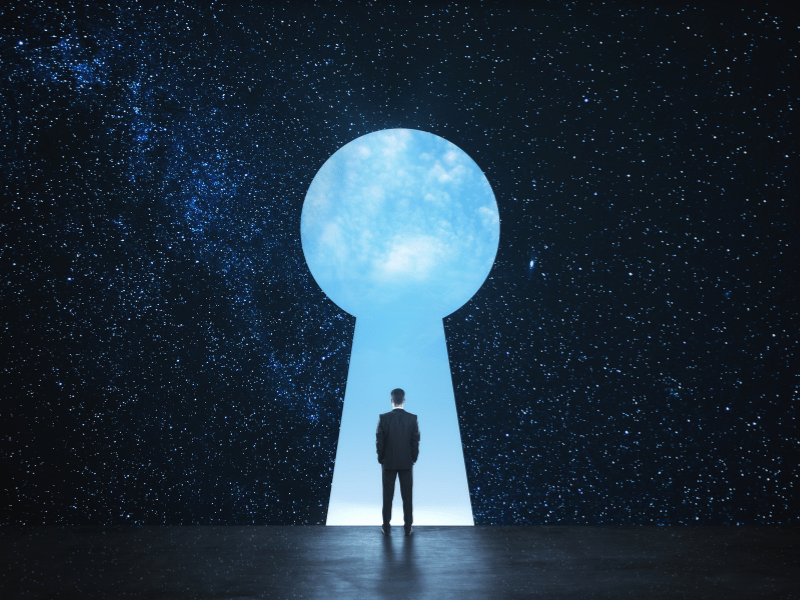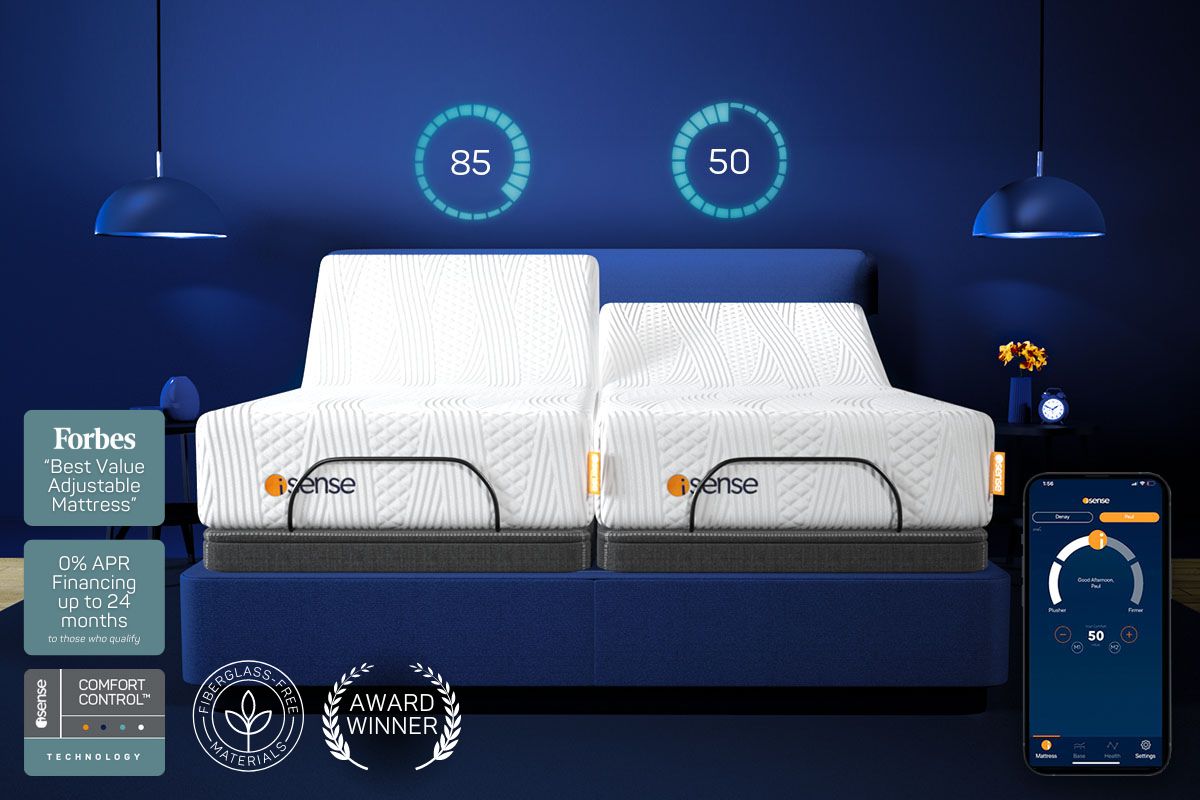You might be surprised to learn that those restless, sleepless nights you've been having could have a deeper connection with your mental health. Studies show that our sleep patterns and mental well-being are intrinsically linked in what science calls a 'bidirectional relationship'.
This article will explore the intricate relationship between sleep quality and various mental health conditions, helping you better understand how one impacts the other. Ready to unravel the secrets of slumber? Let's dive in!
The link between Sleep and Mental Health
Mental health can significantly affect sleep patterns, leading to disturbances and poor quality of sleep.
How Mental Health Affects Sleep
Mental health can change how well you sleep. If you have a lot of stress, it might make it hard for you to fall asleep. You could wake up many times in the night, or get up too early in the morning. Some people with anxiety and depression may also face these problems. Sometimes your mind is filled with bad thoughts that keep you awake at night which harms both sleep quality and mental health conditions.
This type of trouble sleeping is called insomnia, which is linked to higher levels of distress from things like worry or sadness.
How Sleep Affects Mental Health
Good sleep is key to good mental health. Lack of sleep can lead to a lot of problems. It can make you cranky, sad, or angry. When we don't get enough sleep, our minds do not work well.
This means it may be hard for us to think clearly or make choices.
Some people even "see" things that aren't there when they lack sleep! Long periods without rest hurt our mood and stress levels too. Taking care of your sleep habits could mean less chance of being sick in the mind. That's because deep, good-quality sleep supports a happy and healthy brain. It boosts your mood and helps you focus better during the day.
So if you want to keep your mind strong, focus on getting good rest every night!
Specific Mental Health Conditions and their Effects on Sleep
Depression, anxiety disorders, bipolar disorder, schizophrenia, ADHD, and autism spectrum disorder can all significantly impact sleep patterns and quality.
Depression
Depression and sleep have a strong link. Some people with this mental illness may find it hard to fall asleep. They could wake up often or sleep too much. This is known as a sleep disorder.
These odd sleeping patterns can make the feelings of depression worse.
People suffering from insomnia are more likely to face signs of depression later in life. Insomnia makes them unable to rest well at night, which leads to higher levels of stress and anger during the day.
Good rest reduces these problems and helps calm an upset mind.
Anxiety Disorders
Anxiety disorders can have a big impact on sleep. People with anxiety often struggle to fall asleep or stay asleep throughout the night. This can make them feel tired and irritable during the day.
On the other hand, lack of sleep can also worsen anxiety symptoms, making it harder for people to manage their worries and fears. Insomnia is a common symptom of anxiety, which means that people with anxiety may have trouble getting enough restful sleep. It's important to address both anxiety and sleep problems together to improve overall mental health and well-being.
Bipolar Disorder
Bipolar disorder is a mental illness that causes unusual shifts in mood. People with bipolar disorder may experience extreme highs, called manic episodes, and lows, known as depressive episodes.
These mood swings can have a significant impact on sleep. During depressive episodes, individuals with bipolar disorder often struggle with insomnia or have trouble staying asleep.
On the other hand, during manic episodes, they may experience hypersomnia and feel the need to sleep excessively. Sleep disturbances can also trigger symptoms of bipolar disorder and worsen its severity.
Schizophrenia
Schizophrenia is a mental health condition that can affect sleep. People with schizophrenia often have trouble sleeping, experiencing difficulty falling asleep or staying asleep throughout the night.
Sleep disturbances are common in individuals with this disorder, and they can further impact their overall well-being. Research has shown that schizophrenia patients have altered sleep patterns and experience disruptions in their sleep architecture. They may also exhibit abnormal rapid eye movement (REM) sleep and reduced slow-wave sleep, which are important for restoring the body and mind.
These changes in sleep can contribute to increased daytime fatigue and worsen cognitive functioning. Additionally, insomnia is strongly associated with schizophrenia. Insomnia refers to difficulties falling asleep or maintaining quality sleep over time. It has been identified as one of the early warning signs of mental health conditions like schizophrenia.
ADHD
ADHD, or attention deficit hyperactivity disorder, is a mental health condition that can affect sleep. People with ADHD often struggle with disordered or disturbed sleep patterns. They may have trouble falling asleep, staying asleep, and waking up in the morning. This lack of quality sleep can make their ADHD symptoms worse during the day. Children with ADHD also tend to experience more bedtime resistance and difficulty settling down for sleep.
On the other hand, poor sleep may contribute to the development of ADHD or worsen existing symptoms. Sleep disturbances can increase the risk of developing ADHD in both children and adults.
This bidirectional relationship between sleep and ADHD means that improving sleep can potentially improve ADHD symptoms as well.
Autism Spectrum Disorder
Autism Spectrum Disorder (ASD) is a developmental disorder that can affect sleep. Children and adolescents with ASD often struggle with various sleep problems, such as insomnia and sleep deprivation.
Between 50 and 80% of children with ASD experience sleep disturbances. It's important to note that these sleep problems co-occur with ASD, rather than preceding or worsening autistic behavior.
While specific mental health conditions are not directly associated with sleep problems in individuals with ASD, adults with ASD may have stronger connections between their sleep problems and mental health issues.
Ways To Improve Both Sleep and Mental Health
Implementing cognitive behavioral therapy (CBT) and adopting healthier sleep habits have been shown to effectively enhance both sleep quality and mental health.
Cognitive Behavioral Therapy
Cognitive Behavioral Therapy (CBT) is a highly effective approach for improving both sleep and mental health. Here are some ways CBT can help:
- Changing sleep habits: CBT focuses on identifying and challenging negative thought patterns that contribute to poor sleep. By addressing these thought processes, individuals can learn to develop healthier sleep habits.
- Cognitive restructuring: CBT helps individuals recognize and change distorted thoughts and beliefs about sleep. This can reduce anxiety and stress related to sleep, leading to better overall mental well-being.
- Improving sleep hygiene: CBT-I teaches individuals about the importance of good sleep hygiene practices, such as maintaining a consistent sleep schedule, creating a comfortable sleep environment, and avoiding stimulating activities before bed.
- Insight into underlying issues: CBT provides individuals with the tools to explore and address any underlying psychological or emotional factors that may be contributing to their sleep difficulties. By understanding these factors, individuals can work towards resolving them and improving both their sleep quality and mental health.
- Long-term results: Research has shown that CBT-I is an effective long-term treatment for insomnia. It has been found to be as effective as medication treatments for sleep problems without any side effects or risks.
Improving Sleep Habits
Improving sleep habits is crucial for both a restful night's sleep and maintaining good mental health. Here are some science-backed ways to improve your sleep habits and promote better mental wellbeing:
- Stick to a consistent sleep schedule: Try to go to bed and wake up at the same time every day, even on weekends. This helps regulate your body's internal clock and promotes better quality sleep.
- Create a relaxing bedtime routine: Develop a relaxing routine before bed that signals to your brain that it's time to wind down. This can include activities like reading a book, taking a warm bath, or practicing relaxation techniques such as deep breathing or meditation.
- Make your bedroom a sleep-friendly environment: Keep your bedroom cool, dark, and quiet. Use curtains or blinds to block out any external light and consider using earplugs or white noise machines if you live in a noisy area.
- Limit exposure to electronic devices before bed: The blue light emitted from screens can disrupt your sleep cycle. Avoid using smartphones, tablets, or computers for at least an hour before bedtime.
- Avoid stimulants close to bedtime: Limit your intake of caffeine (found in coffee, tea, chocolate, etc.) and avoid large meals or spicy foods before bedtime as they can interfere with sleep.
- Incorporate regular physical activity into your day: Engaging in regular exercise during the day can help improve both the quality and duration of your sleep. However, try not to exercise too close to bedtime as it may make it harder for you to fall asleep.
Science-Backed Interventions to Address Sleep-Related Mental Health Issues
Empower Sleep's Approach utilizes evidence-based techniques to address sleep-related mental health issues.
Empower Sleep's Approach
Empower Sleep takes a scientific approach to address sleep-related mental health issues. They focus on interventions that are backed by research and aim to understand the bidirectional relationship between sleep and mental health.
Their goal is to improve both sleep quality and psychological well-being. By addressing the underlying factors that affect sleep, such as stress management and cognitive function, Empower Sleep aims to provide effective solutions for individuals struggling with mental health disorders.
Through their approach, they recognize the crucial role that sleep plays in overall well-being and work towards helping mattress buyers achieve better sleep for improved emotional health and mood stability.
Conclusion
Sleep and mental health have a bidirectional relationship, meaning that they affect each other in significant ways. Poor sleep can contribute to the development or worsening of mental health conditions like depression and anxiety, while mental health issues can also lead to disruptions in sleep.
Recognizing this connection is essential for improving both sleep and mental well-being. By implementing strategies such as cognitive behavioral therapy and adopting healthy sleep habits, individuals can take steps toward enhancing their overall quality of life.
FAQs
1. How does sleep affect mental health?
Lack of sleep can negatively impact mental health by increasing the risk of developing conditions like anxiety and depression.
2. Can mental health issues cause sleep problems?
Yes, mental health issues can contribute to sleep problems such as insomnia or disrupted sleep patterns.
3. What are some tips for improving both sleep and mental health?
Establishing a consistent bedtime routine, practicing relaxation techniques, exercising regularly, and seeking professional help if needed can all help improve both sleep and mental health.
4. How much sleep do I need for good mental health?
The recommended amount of sleep for adults is 7-9 hours per night for optimal mental well-being.
5. Can medication help with both sleep problems and mental health concerns?
In some cases, medication may be prescribed to address specific sleep or mental health disorders, but it should always be done under the guidance of a healthcare professional.






















